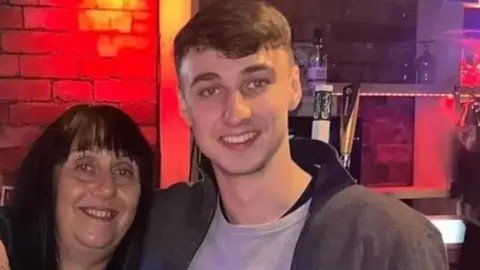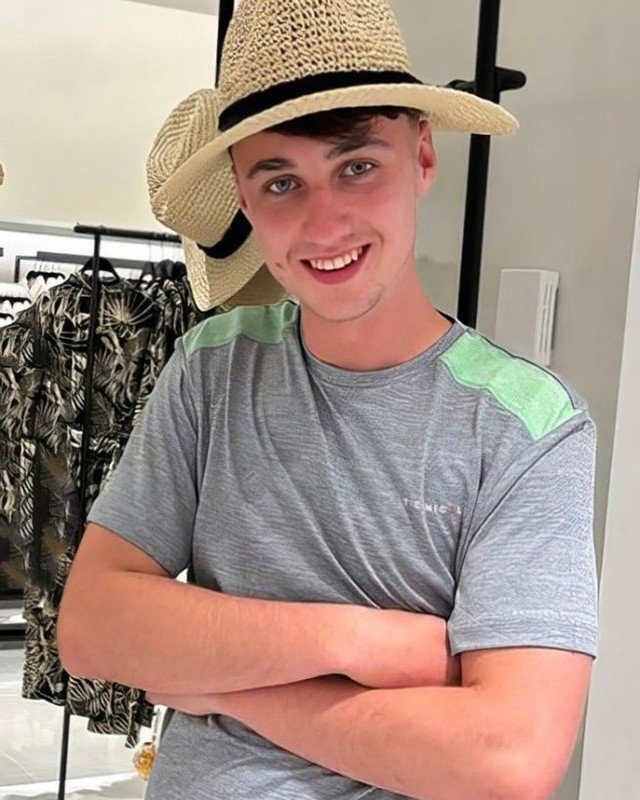Jay Slater’s tragic disappearance and subsequent inquest have gripped the UK, dominating search trends and headlines throughout the summer. The 19-year-old apprentice bricklayer from Oswaldtwistle, Lancashire, went missing during a holiday in Tenerife in June 2024. His mysterious vanishing after a night out, followed by weeks of desperate searching, ended with the heartbreaking discovery of his body in a remote ravine a month later.
Onlookers across Britain followed every twist, feeling empathy for his family and hoping for answers. Now, as the inquest has concluded at Preston Coroner’s Court, many of the key details about the circumstances leading up to Jay’s death have come to light. This article explores the timeline, the evidence, and the questions that remain.
Jay Slater’s Final Hours: What Happened in Tenerife?
Jay travelled to Tenerife with friends for a much-anticipated holiday. He attended the NRG music festival at the Papagayo nightclub in Playa de las Americas on 16 June 2024. During the evening, witnesses say Jay was ejected from the club due to heavy intoxication.
Instead of returning to his apartment with his friends, Jay accepted an invitation from two men he met during the night to join them at their Airbnb in Masca, a remote village far from the main tourist resorts. This unexpected detour would set in motion a chain of events that proved fatal.
Court testimony revealed that in the early hours, Jay consumed ecstasy pills, possibly ketamine, and cocaine, alongside significant amounts of alcohol. His friend, Bradley Geoghegan, confirmed to the coroner that Jay was “still under the influence” the following morning when he made contact via a video call.
The Desperate Walk and Last Messages
Phone records and testimony offer a haunting glimpse into Jay’s last known movements. He attempted to find his way back to Los Cristianos, reportedly a 25-mile journey on foot. Evidence from multiple sources suggests he was both disoriented and ill-prepared, with little money and a dying phone battery.
Just before 9am on 17 June, Jay called his friend Lucy Law. In the 22-second phone call, he confided that he was lost, had cut his leg on a cactus, and that his phone battery was about to run out. Messages from friends urged him to get back while it was still cool outside, reflecting their concern for his welfare. After this final communication, all activity on Jay’s phone ceased.
A widespread search began, involving local authorities, mountain rescue teams, volunteers, and even support campaigns in the UK. Despite the rapid response, it would take 29 days to locate Jay’s body in a remote ravine near where his phone’s signal had last been traced.
Inquest Evidence: Drug Use and the Pathologist’s Report
The inquest heard expert insights from toxicology and forensic specialists. Dr Stephanie Martin, a respected toxicologist, presented evidence showing Jay had consumed MDMA, ketamine, cocaine, and alcohol prior to his disappearance. The coroner, Dr James Adeley, stated the combination of substances likely affected Jay’s judgement and physical state.
Home Office pathologist Dr Richard Shepherd testified that Jay’s injuries were “entirely consistent” with a fall from a great height. The severity of his head injury meant that death would have been almost instantaneous. Crucially, there was no evidence of assault, restraint, or any third-party involvement. Patterns of injury and forensic examination ruled out foul play.
Detective Chief Inspector Rachel Higson, from Lancashire Constabulary, reinforced these findings, stating that police had carefully analysed all digital communications. Phone data, witness statements, and Spanish police reports consistently indicated that Jay’s death was a tragic accident rather than a crime.

Missing Witnesses and Unanswered Questions
Despite the evidence, some key parts of the story are left frustratingly incomplete. The coroner had to adjourn the initial inquest in May after several witnesses failed to attend or could not be traced, including Jay’s friends and the two men who had invited him to their Airbnb. Senior Coroner Dr Adeley expressed his frustration at the lack of cooperation, especially as drug use was a factor.
Jay’s mother, Debbie Duncan, requested that the inquest be resumed so these witnesses could be questioned. She voiced the family’s continuing pain and need for closure, explaining, “How can we ever get any understanding? There are things we want to question.”
Efforts to contact these witnesses have so far proven unsuccessful, which has only deepened speculation and emotional debate within the public and on social media. Rumours about thefts or a robbery were also addressed in court, but no evidence has substantiated such claims, according to official statements.
The Context: Search Efforts and Public Support
The search for Jay drew significant attention both in the UK and Spain. Local authorities, British volunteers, and mountain rescue teams combed the harsh terrain of the Rural de Teno Park. His family travelled to Tenerife and coordinated parallel searches, supported by resources raised through a GoFundMe campaign. Notably, Jay’s mother said the campaign was set up without her knowledge, though it ultimately contributed to search efforts.
The case inspired numerous online campaigns, with Facebook groups dedicated to supporting the family and tracking updates surging in numbers. However, these campaigns also gave rise to speculation and unhelpful gossip, which authorities have repeatedly tried to quell with official updates and statements.
Moving Forward
While the inquest has now formally concluded, the circumstances surrounding Jay Slater’s tragic death are clearer but not fully resolved. The official cause of death is established as a severe traumatic brain injury from a fall, with no third-party involvement suspected.
Jay’s case has highlighted the dangers facing young travellers abroad, particularly when alcohol and drugs are involved. Coroners, police, and family have consistently urged others to learn from this tragedy and to take extra care when far from home.
Conclusion:
The inquest into Jay Slater’s tragic death has brought some clarity but leaves lingering questions for his loved ones. While official findings confirm his passing was a heartbreaking accident with no evidence of crime, the pain for his family and the wider community remains profound. Jay’s story serves as a stark reminder of the importance of safety abroad and the enduring strength of public and family support in times of loss.
Read More: Chuck Mangione: The Soaring Legacy of a Jazz Icon

